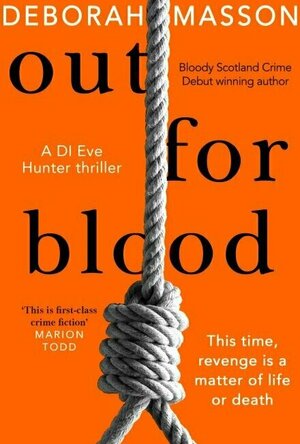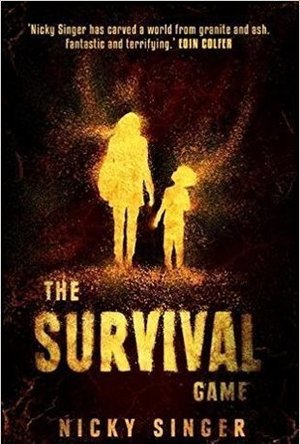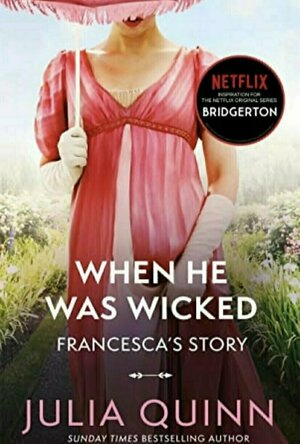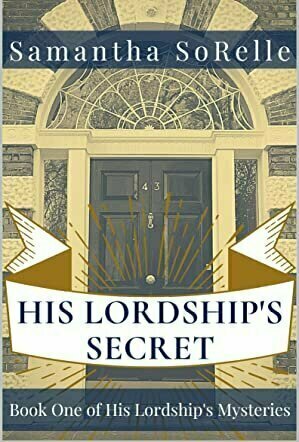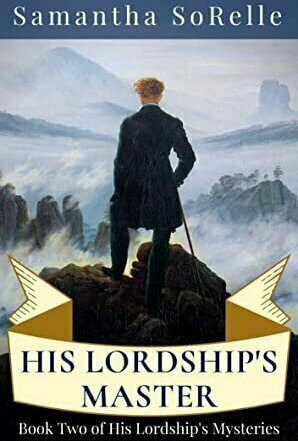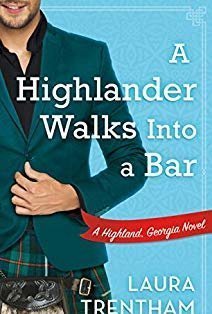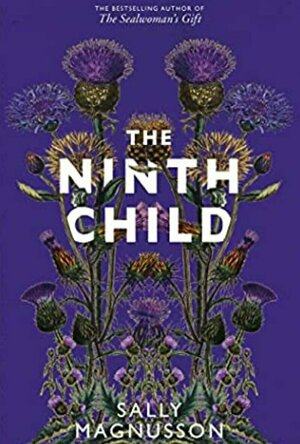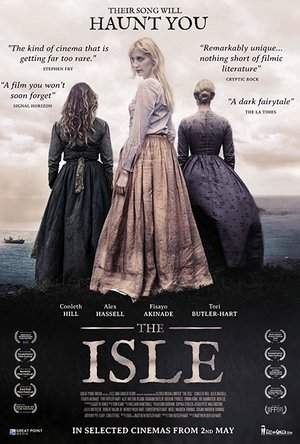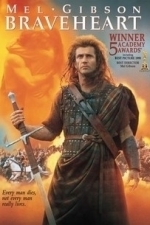Search
Search results
Hazel (2934 KP) rated Out For Blood (DI Eve Hunter #2) in Books
Dec 13, 2020
After reading and enjoying the first in this series, Hold Your Tongue, I was looking forward to getting my teeth into this one and I wasn't disappointed. I will say that although you don't necessarily have to have read the first, I do think you will enjoy this second one more if you do.
This is a gritty police procedural set in Aberdeen, Scotland which delves into the seedy and repulsive world of human trafficking but what does the death of a privileged young man and the apparent suicide of a young woman have in common? On first impressions, absolutely nothing however, DI Hunter and her team set about investigating and what they find is worse than they expected.
Mainly written from Eve's perspective interspersed with other characters and those of an unknown young woman, this gave insight from all the important protagonists in this book and provided a well-rounded view of the situation from all angles. The characters are well developed and believable with the relationships between Eve and her wider team excellently portrayed.
The story is a difficult one to read in parts but, I felt, was dealt with respectfully but with no holds-barred which made it feel authentic making me feel both sad and angry in equal measure that these things are likely to be happening to someone right now! The pace is good, it does start off a little slow but increases as the story develops and this follows the pace of the investigation, again making it feel believable and, once again, the author manages to keep the identity of the killer well hidden which kept me guessing and second guessing throughout.
Overall, I have no hesitation in recommending this to others who enjoy a cleverly written and gripping police procedural and I look forward to reading the next instalment in what is a great series with DI Hunter fast becoming a favourite character of mine.
I was fortunate enough to have been invited to read an advance copy by Transworld Publishers, part of Penguin Random House UK, via NetGalley in return for an unbiased and unedited review and for which, I am thankful.
This is a gritty police procedural set in Aberdeen, Scotland which delves into the seedy and repulsive world of human trafficking but what does the death of a privileged young man and the apparent suicide of a young woman have in common? On first impressions, absolutely nothing however, DI Hunter and her team set about investigating and what they find is worse than they expected.
Mainly written from Eve's perspective interspersed with other characters and those of an unknown young woman, this gave insight from all the important protagonists in this book and provided a well-rounded view of the situation from all angles. The characters are well developed and believable with the relationships between Eve and her wider team excellently portrayed.
The story is a difficult one to read in parts but, I felt, was dealt with respectfully but with no holds-barred which made it feel authentic making me feel both sad and angry in equal measure that these things are likely to be happening to someone right now! The pace is good, it does start off a little slow but increases as the story develops and this follows the pace of the investigation, again making it feel believable and, once again, the author manages to keep the identity of the killer well hidden which kept me guessing and second guessing throughout.
Overall, I have no hesitation in recommending this to others who enjoy a cleverly written and gripping police procedural and I look forward to reading the next instalment in what is a great series with DI Hunter fast becoming a favourite character of mine.
I was fortunate enough to have been invited to read an advance copy by Transworld Publishers, part of Penguin Random House UK, via NetGalley in return for an unbiased and unedited review and for which, I am thankful.
ClareR (5885 KP) rated The Survival Game in Books
Sep 10, 2018
Global warming from a child's perspective.
I know it's necessary to have differentiation between the age groups for the protection of those who are youngest, but in this case, knowing that this is a child's/ young person's book, may put adults off reading this - and that would be a shame. All of the themes in this novel are very current. Set against the backdrop of a global climate disaster, we see how the displaced are treated: in a word, badly. We see the devastation that global warming wreaks, and the terrifying journey that a 14 year old girl, Mhairi Anne Bain (Mab, for short, which is interesting, as she is a symbol of freedom in Shakespeare and Mab Darogan in Welsh folklore was someone who was prophesied to come and save the Welsh from the English by forcing them out, as the Scots have forced the English out in this story, I suppose. Don't ask me how I remember this kind of information) makes on her own from the Sudan to the Isle of Arran. On her journey, she meets a young boy who doesn't speak, and she finds herself feeling responsible for him. I think he gives her some hope and a reason to keep going, to be honest. She decides to take him home with her, but of course, it isn't that easy.
Everything in this novel is plausible - the way in which Scotland and other countries decide how to control population, global warming and its consequences, and the resultant mass movement of people affected by drought and flooding.
I really enjoyed this: Mhairi has a very mature voice, as would any child who had seen and experienced what she had, and she is believable. We don't see all of the horrors she experiences, but they are alluded to, which is probably a very good idea when children are going to be the target audience. To be honest, there are a lot of adults that really don't want or need the gory details.
This is a timely novel, and one that is important to read. I could see that there would be a lot of discussion arising from this book in a classroom.
Many thanks to NetGalley and the publisher for my copy of this book to read and to give an honest review.
Everything in this novel is plausible - the way in which Scotland and other countries decide how to control population, global warming and its consequences, and the resultant mass movement of people affected by drought and flooding.
I really enjoyed this: Mhairi has a very mature voice, as would any child who had seen and experienced what she had, and she is believable. We don't see all of the horrors she experiences, but they are alluded to, which is probably a very good idea when children are going to be the target audience. To be honest, there are a lot of adults that really don't want or need the gory details.
This is a timely novel, and one that is important to read. I could see that there would be a lot of discussion arising from this book in a classroom.
Many thanks to NetGalley and the publisher for my copy of this book to read and to give an honest review.
Laura Doe (1350 KP) rated When He Was Wicked (Bridgertons, #6) in Books
Jan 9, 2022
I was surprised with how different this book was from all the others, but in a good way. It meant that I didn’t get bored as the others are fairly similar looking back on them.
We start 2 years into Francesca’s marriage, which is completely different to the other books as we follow them as they are looking for their future spouse. Then rather unfortunately, her beloved husband - John dies, leaving her widowed only 2 years into their marriage.
His cousin, and both Francesca and John’s best friend, Michael is also shocked to the core at his death and at his newfound Earldom. Michael has also been in love with Francesca since he met her, but out of loyalty to his cousin has never told anyone of this. In previous books, I would have guessed that Michael would have pursued Francesca straight away, but I was glad that I was wrong and it made it a much better read that he didn’t.
This book deals with a few different medical issues, which at the end Julia Quinn does explain more about and confirmed my suspicions as to why John died. It was definitely such a different pace to this book and it was nice to change up the style slightly. I enjoyed the excerpts of letters at the start of each chapter (although still not quite as good as Lady Whistledown’s comments!) and it definitely gave more of an insight into what they were thinking, especially as it included letters that weren’t sent at all.
Before this book, we didn’t know too much about Francesca, other than she’d married an Earl and spent a lot of time in Scotland, but this book made her more than just a mention and you realised that she is a bit different from her siblings and probably quite enjoys being away from everyone. I also liked how it brought together the events in both Colin’s story and Eloise’s story as they happen so close together, I think it ties the stories up quite neatly as you sometimes forget during this book that Francesca was a Bridgerton since she doesn’t spend a lot of time with them in this book.
This has definitely firmly cemented its place in my top 3 of this series and I’m hoping that the next book is just as good to read.
We start 2 years into Francesca’s marriage, which is completely different to the other books as we follow them as they are looking for their future spouse. Then rather unfortunately, her beloved husband - John dies, leaving her widowed only 2 years into their marriage.
His cousin, and both Francesca and John’s best friend, Michael is also shocked to the core at his death and at his newfound Earldom. Michael has also been in love with Francesca since he met her, but out of loyalty to his cousin has never told anyone of this. In previous books, I would have guessed that Michael would have pursued Francesca straight away, but I was glad that I was wrong and it made it a much better read that he didn’t.
This book deals with a few different medical issues, which at the end Julia Quinn does explain more about and confirmed my suspicions as to why John died. It was definitely such a different pace to this book and it was nice to change up the style slightly. I enjoyed the excerpts of letters at the start of each chapter (although still not quite as good as Lady Whistledown’s comments!) and it definitely gave more of an insight into what they were thinking, especially as it included letters that weren’t sent at all.
Before this book, we didn’t know too much about Francesca, other than she’d married an Earl and spent a lot of time in Scotland, but this book made her more than just a mention and you realised that she is a bit different from her siblings and probably quite enjoys being away from everyone. I also liked how it brought together the events in both Colin’s story and Eloise’s story as they happen so close together, I think it ties the stories up quite neatly as you sometimes forget during this book that Francesca was a Bridgerton since she doesn’t spend a lot of time with them in this book.
This has definitely firmly cemented its place in my top 3 of this series and I’m hoping that the next book is just as good to read.
Debbiereadsbook (1454 KP) rated His Lordship's Secret (His Lordship’s Mysteries #1) in Books
Mar 24, 2022
didn't get the whodunnit!
Independent reviewer for Archaeolibrarian, I was gifted my copy of this book.
Someone is trying to kill Alfred, so who would make a better bodyguard than a ruffain from a boxing match? Dominick, thats who, but finding the boy who saved him in the man before him makes Alfred want things, things that could get them both locked up, or worse. Makes a blackmailer a walk in the park. Dominick, finding Alfie before him, in need of a body guard, has feelings that he wasn't sure ever went away: protecting little Alfie was now his life's work. Those pesky feelings aren't reciprocated, are they?
Alfie is lovely! He wants to keep his family wealth but his cousin is happy to pee it up the wall, Alfie cares, but Reginald does not. Dominick cares, but really only about Alfie. The little boy who stole his heart has grown into a beautiful man, one who needs to stay alive, and Dominick will keep him so, even if it costs Dominick a good deal more than his heart.
It's quite emotional, in places. Dealing with growing up in a poorhouse, and then thrown into High Society would mess with anyone's head and Alfie mostly does seem to have taken it all in his stride. Mostly. Dominck is a street man, doing what he needs to do to stay alive, even if he doesn't want to do those things. A bit violent, but dealing with life on London's streets in the 1800s was never gonna be a picnic. Poor Dominick bears the brunt of that!
There is love here, but very little actual smexy time. It concentrates more on who is trying to kill Alfie, and the feelings that grow over time, between these two.
I loved that the whodunnit was so NOT who I was expecting, nor was it WHY! I love being kept on my toes!
I liked this, I liked it a lot. It doesn't quite have the punch that the other book I read by this author does, but I think its a close call! I have book 2 to read shortly, look forward to see where the author is going with these two, besides Scotland!
4 solid stars
*same worded review will appear elsewhere
Someone is trying to kill Alfred, so who would make a better bodyguard than a ruffain from a boxing match? Dominick, thats who, but finding the boy who saved him in the man before him makes Alfred want things, things that could get them both locked up, or worse. Makes a blackmailer a walk in the park. Dominick, finding Alfie before him, in need of a body guard, has feelings that he wasn't sure ever went away: protecting little Alfie was now his life's work. Those pesky feelings aren't reciprocated, are they?
Alfie is lovely! He wants to keep his family wealth but his cousin is happy to pee it up the wall, Alfie cares, but Reginald does not. Dominick cares, but really only about Alfie. The little boy who stole his heart has grown into a beautiful man, one who needs to stay alive, and Dominick will keep him so, even if it costs Dominick a good deal more than his heart.
It's quite emotional, in places. Dealing with growing up in a poorhouse, and then thrown into High Society would mess with anyone's head and Alfie mostly does seem to have taken it all in his stride. Mostly. Dominck is a street man, doing what he needs to do to stay alive, even if he doesn't want to do those things. A bit violent, but dealing with life on London's streets in the 1800s was never gonna be a picnic. Poor Dominick bears the brunt of that!
There is love here, but very little actual smexy time. It concentrates more on who is trying to kill Alfie, and the feelings that grow over time, between these two.
I loved that the whodunnit was so NOT who I was expecting, nor was it WHY! I love being kept on my toes!
I liked this, I liked it a lot. It doesn't quite have the punch that the other book I read by this author does, but I think its a close call! I have book 2 to read shortly, look forward to see where the author is going with these two, besides Scotland!
4 solid stars
*same worded review will appear elsewhere
Debbiereadsbook (1454 KP) rated His Lordship's Master (His Lordship’s Mysteries #2) in Books
Mar 31, 2022
I could see that things were really not as they were portrayed to be.
Independent reviewer for Archaeolibrarian, I was gifted my copy of this book.
This is book 2 in the His Lordship's Mysteries series, and while this can be read as a stand alone, I really think you SHOULD read book one, His Lordship's Secret before this one. Lots happened in that book that is referenced here, but not fully explained. You could probably piece things together, but I think to get the full effect of Alfie and Dominick, you need to read that book first.
Still recovering from what happened in London, Alfie and Dominick retreat to his family house in Scotland. And find themselves in the middle of an age-old mystery. What with ghosts and missing people and now a dead butler, Alfie and Dominick jump headlong into another caper!
I really was enjoying this a bit more than book one, but something triggered with me, and I found myself thinking about another book. With another ago-old mystery, with another painting, in another castle. And I'm stumped as to which book it was, but after that point, I found I didn't enjoy it quite so much.
Oh don't get me wrong, please. It's really well written, from both Alfie and Dominick's point of view. There are more things revealed about both Alfie and Dom's lives in the time they were apart. There is much love here, even if they sometimes forget that.
I again quote my review for Secret:
I loved that the whodunnit was so NOT who I was expecting, nor was it WHY! I love being kept on my toes!
Because I really did not see that one coming at me. But the whole Wicked Master thing? I could see that coming at me, even before the point I mentioned before. I could see that things were really not as they were portrayed to be.
There are almost two stories going on here. The missing woman and the dead butler, then the Wicked Master thing. I liked that, along with the growing deepening connection between Alfie and Dom, which evokes some mighty powerful feelings here!
So, even though things were a little blurry, I did enjoy it and I'll still give it. . .
4 solid stars
*same worded review will appear elsewhere
This is book 2 in the His Lordship's Mysteries series, and while this can be read as a stand alone, I really think you SHOULD read book one, His Lordship's Secret before this one. Lots happened in that book that is referenced here, but not fully explained. You could probably piece things together, but I think to get the full effect of Alfie and Dominick, you need to read that book first.
Still recovering from what happened in London, Alfie and Dominick retreat to his family house in Scotland. And find themselves in the middle of an age-old mystery. What with ghosts and missing people and now a dead butler, Alfie and Dominick jump headlong into another caper!
I really was enjoying this a bit more than book one, but something triggered with me, and I found myself thinking about another book. With another ago-old mystery, with another painting, in another castle. And I'm stumped as to which book it was, but after that point, I found I didn't enjoy it quite so much.
Oh don't get me wrong, please. It's really well written, from both Alfie and Dominick's point of view. There are more things revealed about both Alfie and Dom's lives in the time they were apart. There is much love here, even if they sometimes forget that.
I again quote my review for Secret:
I loved that the whodunnit was so NOT who I was expecting, nor was it WHY! I love being kept on my toes!
Because I really did not see that one coming at me. But the whole Wicked Master thing? I could see that coming at me, even before the point I mentioned before. I could see that things were really not as they were portrayed to be.
There are almost two stories going on here. The missing woman and the dead butler, then the Wicked Master thing. I liked that, along with the growing deepening connection between Alfie and Dom, which evokes some mighty powerful feelings here!
So, even though things were a little blurry, I did enjoy it and I'll still give it. . .
4 solid stars
*same worded review will appear elsewhere
Whatchareadin (174 KP) rated A Highlander Walks Into a Bar in Books
Aug 5, 2019
Isabel and Rose Buchanan are mother and daughter who live on a lovely Scottish estate in Highland, GA. Every year, they are in charge of a festival highlighting their Scottish heritage. Izzy as she is called by her friends is surprised when she picks her mom up from the airport and she is not alone. Gareth Connors in all of the Scottish glory is with her and Izzy has quite a few mixed emotions about this arrangement. To top that off, a few days later a friend of Gareth's invades their space as well, Alasdair. Izzy is very wary of these two. What are their intentions? Will she and her mother make it through the festival without any issues?
Thank you to NetGalley and St. Martin's Press for the opportunity to read and review this book.
I was really excited to read this book when I first received it. I have been reading a lot of really steamy romance this summer and I was sure this one was going to be the same. Overall, I enjoyed the book, but it left me a bit confused by the language used. The book is set in the South in the US, with ties back to Scotland, but a lot of the wording made me believe that this book was written by a British author. I am also reading an Advanced Copy, so maybe some of that wording will be changed in the final copy.
All the characters in this book are ones I can see myself hanging out with. Izzy is a clumsy woman who is just trying to figure out the life she's living. Whether it brings her joy or if there is something else she can be doing to be happy. Living with her mother and taking care of their home, and being in charge of the festival are all noble deeds, but are they making her happy. When Izzy meets Alasdair, at first she isn't sure how to feel about him. Yes, he is attractive with a deep Scottish accent, but she isn't sure of his true intentions. The same is true of Gareth, although most of her feelings toward him seem to stem from not seeing her mother with anyone else besides her father.
Both of the Buchanan women need some change in their lives. Will these Scottish men be the ones to bring it to them or will they both be left heartbroken?
The book leaves you knowing there is going to be more to this story and I'm interested to find out what is going to happen next.
Thank you to NetGalley and St. Martin's Press for the opportunity to read and review this book.
I was really excited to read this book when I first received it. I have been reading a lot of really steamy romance this summer and I was sure this one was going to be the same. Overall, I enjoyed the book, but it left me a bit confused by the language used. The book is set in the South in the US, with ties back to Scotland, but a lot of the wording made me believe that this book was written by a British author. I am also reading an Advanced Copy, so maybe some of that wording will be changed in the final copy.
All the characters in this book are ones I can see myself hanging out with. Izzy is a clumsy woman who is just trying to figure out the life she's living. Whether it brings her joy or if there is something else she can be doing to be happy. Living with her mother and taking care of their home, and being in charge of the festival are all noble deeds, but are they making her happy. When Izzy meets Alasdair, at first she isn't sure how to feel about him. Yes, he is attractive with a deep Scottish accent, but she isn't sure of his true intentions. The same is true of Gareth, although most of her feelings toward him seem to stem from not seeing her mother with anyone else besides her father.
Both of the Buchanan women need some change in their lives. Will these Scottish men be the ones to bring it to them or will they both be left heartbroken?
The book leaves you knowing there is going to be more to this story and I'm interested to find out what is going to happen next.
ClareR (5885 KP) rated The Ninth Child in Books
May 1, 2020
Victorian Scotland, where reality meets myth.
The Ninth Child is a mesmerising mix of reality and fairytale. Neither of them are the pretty version, either. The story itself is set in Glasgow and the Trossachs between 1856 and 1859, where Isabel Aird is the wife of a young doctor. She has miscarried all seven of the babies she has carried so far, and is struggling to find meaning in her life. Her husband is very protective of her, but she can’t seem to forgive him for his apparent ability to shake off the loss of their babies.
We also get little glimpses in to the private lives of Queen Victoria and Albert, and the reason for this becomes clear as the story progresses. The link between the two families seems to be a strange character called Robert Kirke. Strange things seem to have been happening since the digging and tunnelling began. Isabel meets this strange man not long after she moves near to the site of the Loch Katrine Waterworks. This is no place for a lady brought up in all the comforts of a well-to-do Glaswegian home. But Isabel finds solace in the wildness, and the descriptions of the lochs and landscapes makes it easy to understand why.
This was such a surprising book, it wasn’t at all what I was expecting. I WAS expecting a good story - I loved The Sealwoman’s Gift. The mix of real, hard life and the fairy elements were really well done, and I loved that these weren’t the pretty, twee, friendly fairies that we seem to hear of so much of these days. I like my fairies to be tricksters, untrustworthy, always looking for an angle that they can work, a little grotesque.
I really enjoyed this book, and seemed to read it far too quickly. I’m a lover of history, myths and the unexplained, and this certainly delivered in these areas. The writing is gorgeous - the descriptions are such that you feel you’re there. We were supposed to be going on holiday this year to the Highlands, and this has made me hope even more that we’ll still be able to go. It’s one thing reading a description, it’s quite another to be there, experiencing the landscape for yourself.
This is a wonderful book, and one to tell my friends about!
Many thanks to NetGalley and Two Roads for my copy of this book to read and review.
We also get little glimpses in to the private lives of Queen Victoria and Albert, and the reason for this becomes clear as the story progresses. The link between the two families seems to be a strange character called Robert Kirke. Strange things seem to have been happening since the digging and tunnelling began. Isabel meets this strange man not long after she moves near to the site of the Loch Katrine Waterworks. This is no place for a lady brought up in all the comforts of a well-to-do Glaswegian home. But Isabel finds solace in the wildness, and the descriptions of the lochs and landscapes makes it easy to understand why.
This was such a surprising book, it wasn’t at all what I was expecting. I WAS expecting a good story - I loved The Sealwoman’s Gift. The mix of real, hard life and the fairy elements were really well done, and I loved that these weren’t the pretty, twee, friendly fairies that we seem to hear of so much of these days. I like my fairies to be tricksters, untrustworthy, always looking for an angle that they can work, a little grotesque.
I really enjoyed this book, and seemed to read it far too quickly. I’m a lover of history, myths and the unexplained, and this certainly delivered in these areas. The writing is gorgeous - the descriptions are such that you feel you’re there. We were supposed to be going on holiday this year to the Highlands, and this has made me hope even more that we’ll still be able to go. It’s one thing reading a description, it’s quite another to be there, experiencing the landscape for yourself.
This is a wonderful book, and one to tell my friends about!
Many thanks to NetGalley and Two Roads for my copy of this book to read and review.
Andy K (10823 KP) rated The Isle (2018) in Movies
Oct 12, 2019
Not much happens
Three men survived the destruction of their sailing ship in 19th century Scotland only to find themselves in the middle of the ocean with no where to go. Alas, they discover a small island with the mist of the open sea and decide to try for it. The make it ashore and are relived to be on dry land. The island does have a few residents one of which comes to greet their weary bodies and welcome them to his home.
After drying off, resting and tending to their injuries, the men are eager to return to the mainland which they query their new acquaintance about. He dodges the question several times making mention of other inhabitants of the island. The men decide to explore on their own since their new friend. Additional residents are found, some nice some aloof and maybe not so eager for conversation.
Eventually it is discovered the island has an unsettling curse upon it whereas men are lured to their deaths by the female natives due to an event which happened years earlier involving another female island resident now deceased. The surviving men now have to figure out how to leave The Isle without succumbing to its evil vices.
The best thing The Isle has going for it is the beautiful Scottish countryside, forested landscapes and gorgeous ocean views. At first, you may feel like you are watching a period Scottish episode of Lost or the recent film The Witch when you hear the Sottish accent dialogue; however, this film doesn't have the depth or screenplay of either of these. I read online the script for this film took years to complete, which is unfortunate since not much happens for the first two thirds of screen time. Once on the island, the three ship survivors mostly lounge around getting spooked by the natives and not much else.
Once the "curse" has been revealed the film picks up a bit and the 3rd act is mildly interesting; however, I was out of it by then. The resolution is interesting and entertaining, and saves the film somewhat. I just wish the set up would have been more exciting.
The film was definitely very low budget, which doesn't bother me if still done well. Sometimes, really great films can come with diminutive price tags. That just usually means filmmakers have to be more creative with what they spend their money on and make sure each dollar counts.
In the end, I was left wanting more and was disappointed.
After drying off, resting and tending to their injuries, the men are eager to return to the mainland which they query their new acquaintance about. He dodges the question several times making mention of other inhabitants of the island. The men decide to explore on their own since their new friend. Additional residents are found, some nice some aloof and maybe not so eager for conversation.
Eventually it is discovered the island has an unsettling curse upon it whereas men are lured to their deaths by the female natives due to an event which happened years earlier involving another female island resident now deceased. The surviving men now have to figure out how to leave The Isle without succumbing to its evil vices.
The best thing The Isle has going for it is the beautiful Scottish countryside, forested landscapes and gorgeous ocean views. At first, you may feel like you are watching a period Scottish episode of Lost or the recent film The Witch when you hear the Sottish accent dialogue; however, this film doesn't have the depth or screenplay of either of these. I read online the script for this film took years to complete, which is unfortunate since not much happens for the first two thirds of screen time. Once on the island, the three ship survivors mostly lounge around getting spooked by the natives and not much else.
Once the "curse" has been revealed the film picks up a bit and the 3rd act is mildly interesting; however, I was out of it by then. The resolution is interesting and entertaining, and saves the film somewhat. I just wish the set up would have been more exciting.
The film was definitely very low budget, which doesn't bother me if still done well. Sometimes, really great films can come with diminutive price tags. That just usually means filmmakers have to be more creative with what they spend their money on and make sure each dollar counts.
In the end, I was left wanting more and was disappointed.
Sharpie0499 (114 KP) rated Avengers: Infinity War (2018) in Movies
Jul 9, 2018 (Updated Jul 9, 2018)
Best Marvel film yet (2 more)
Thanos and Black Order were the most terrifying villains yet
Ended on cliffhanger so am excited for Part 2
Best Marvel Film Yet!!!
Contains spoilers, click to show
Overall, Infinity War was the most powerful Marvel film to date; not just because of the powerful superheroes, but because it was able to fill you with adrenaline during fight scenes, fill you with hope when seeing lovers reunited, and wrench at your heartstrings during those difficult to watch, depressing scenes all in one movie. The casting was brilliantly done: Ebony Maw had me internally reeling just at the sight of him, and don't even get me started on Thanos. When seeing Thanos in previous Marvel films, it was obvious he was a threat to humanity but I never really felt afraid of him. But in the first scene when Hulk is beating up Thanos, you think, 'Yes, Hulk! Smash!' But then Thanos decides to turn it around, causing Hulk to be so afraid of Thanos throughout the entire film that he won't let Bruce turn into him. This is because Hulk knows Thanos can beat him, possibly even kill him. When I was sitting in the cinema, watching Scarlet Witch see Thanos for the first time at the end of the film and seeing her genuine terror just at the sight of him (though she could probably sense his powers with her magic) it got me thinking of what I would do in their situation. And I know humanity would have no chance against him, even without the infinity stones, and that he would just destroy us. Anyway, on a happier note, I was thrilled to see Scarlet Witch and Vision together when they were in Scotland. But then Marvel had to go and crush our hearts by having Thanos kill Vision. What really broke my heart was how Vision told Scarlet Witch, 'I love you,' just before he died and then Scarlet Witch's face when she turned into dust or sand or whatever the hell that was. It looked like she was almost relieved to become nothing after Vision's death (I'm probably just reading into that). What also nearly killed me was Rocket's reaction to Groot turning into dust/sand; and the scene on Titan when Spiderman turns into dust/sand. Anyway, this Marvel film beats all others out of the park with the more intense fight choreography, the terrifying villains, and the superheroes banding together and joining forces to beat a common enemy. I'm excited to see a certain new superhero join the team (Captain Marvel) and am counting down the days till May 2019 so I can see the conclusion to Infinity War!
Phillip McSween (751 KP) rated Braveheart (1995) in Movies
Jul 28, 2018
Epic
The Story of Scottish Patriot William Wallace (Mel Gibson) and his quest to unite the clans and rise up against their English oppressors.
Acting: 10
Beginning: 10
The film gets off to a hot start by immediately drawing you into the story. Once the camera pans into the hut with all of the hanging bodies, they had my attention right away. The sheer intrigue was enough to make me want to see more.
Characters: 10
The Scots are a crazy bunch and I LOVE them. Whether old or young, they're all tough guys in their own right. One crazy person is enough to make a film interesting, but you put a bunch of them together and now you're really cooking with fire. William Wallace, of course, takes the cake of all the crazies. His character is easily one of my all-time favorite protagonists from his demeanor to the strong message he carries.
Cinematography/Visuals: 10
You kind of cheat when you shoot a film in Scotland, let's be honest. Beautiful landscapes abound, filled with mountains and lush valleys. I got lost watching William Wallace ride through the countryside on horseback. Made me think, "Damn, am I taking enough vacations?"
It's not the landscapes, however, as the battles are epic and sprawling. You get a taste of a bit of blood or something gory right before it cuts to a new fight. Seeing a fight that probably took hours abbreviated into a couple minutes is jarring and effective. These are some of the best battles captured on film.
Conflict: 10
Genre: 7
Memorability: 8
Braveheart is a film that easily stands the test of time. The brotherhood of the clans alone is memorable in and of itself. These are guys that lay down their lives for each other to advance their nation. The battles that ensue as a result of the stand that these men take are sheer inspiration. "They can take our lives, but they'll never take our freedom!"
Pace: 10
While the film slows down just slightly after the opening scenes, once the fighting starts, things move forward at a breakneck pace. It drives you from one scene to the next with intensity and passion. Just when you think you've had enough action, you're graced with more! Very solid pace.
Plot: 10
Resolution: 5
The ending was a bit deflating, at least for my taste. I respected the realism, but it felt counterintuitive to what the rest of the film was accomplishing. Not horrible, but perhaps a different approach would warrant a better score.
Overall: 90
I never had any interest whatsoever to watch this film and, after finally seeing it, I can't believe I waited this long. Such an inspirational, all-time classic. Loved it.
Acting: 10
Beginning: 10
The film gets off to a hot start by immediately drawing you into the story. Once the camera pans into the hut with all of the hanging bodies, they had my attention right away. The sheer intrigue was enough to make me want to see more.
Characters: 10
The Scots are a crazy bunch and I LOVE them. Whether old or young, they're all tough guys in their own right. One crazy person is enough to make a film interesting, but you put a bunch of them together and now you're really cooking with fire. William Wallace, of course, takes the cake of all the crazies. His character is easily one of my all-time favorite protagonists from his demeanor to the strong message he carries.
Cinematography/Visuals: 10
You kind of cheat when you shoot a film in Scotland, let's be honest. Beautiful landscapes abound, filled with mountains and lush valleys. I got lost watching William Wallace ride through the countryside on horseback. Made me think, "Damn, am I taking enough vacations?"
It's not the landscapes, however, as the battles are epic and sprawling. You get a taste of a bit of blood or something gory right before it cuts to a new fight. Seeing a fight that probably took hours abbreviated into a couple minutes is jarring and effective. These are some of the best battles captured on film.
Conflict: 10
Genre: 7
Memorability: 8
Braveheart is a film that easily stands the test of time. The brotherhood of the clans alone is memorable in and of itself. These are guys that lay down their lives for each other to advance their nation. The battles that ensue as a result of the stand that these men take are sheer inspiration. "They can take our lives, but they'll never take our freedom!"
Pace: 10
While the film slows down just slightly after the opening scenes, once the fighting starts, things move forward at a breakneck pace. It drives you from one scene to the next with intensity and passion. Just when you think you've had enough action, you're graced with more! Very solid pace.
Plot: 10
Resolution: 5
The ending was a bit deflating, at least for my taste. I respected the realism, but it felt counterintuitive to what the rest of the film was accomplishing. Not horrible, but perhaps a different approach would warrant a better score.
Overall: 90
I never had any interest whatsoever to watch this film and, after finally seeing it, I can't believe I waited this long. Such an inspirational, all-time classic. Loved it.
